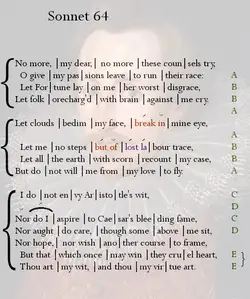
Nor the seas change us, nor the tempests bend Men could not part us with their worldly jars, The death-weights, placed there, would have signifiedįrom God than from all others, O my friend! My sight from seeing thee,-that if I had died,

Thee speaking, and me listening! and replied Have heard this word thou hast said,-Himself, beside The silver answer rang, “Not Death, but Love.” “Guess now who holds thee!”-“Death,” I said, But, there, Straightway I was ’ware,īehind me, and drew me backward by the hair Īnd a voice said in mastery, while I strove,.

Those of my own life, who by turns had flungĪ shadow across me. The sweet, sad years, the melancholy years, I saw, in gradual vision through my tears, To bear a gift for mortals, old or young:Īnd, as I mused it in his antique tongue, Of the sweet years, the dear and wished-for years, Sonnets from the Portuguese by Elizabeth Barrett Browning

Her first collection, Poems (1844) was an immediate success in Europe and the U.S. Her individual poems were becoming known and respected in these circles. Following is the full text of what is arguably her best-known work, Sonnets from the Portuguese, a fragment of one of her major collections, Poems (1844/1850).īorn in County Durham, England, Elizabeth Barrett grew up in an atmosphere of privilege and culture, which allowed her to develop a precocious talent in poetry.Īfter having a collections of her poetry published while still in her teens, Elizabeth was introduced to British literary society in the 1830s. Elizabeth Barrett Browning (1806 – 1861) was immensely accomplished and respected in her own lifetime, no small accomplishment for a female poet.


 0 kommentar(er)
0 kommentar(er)
